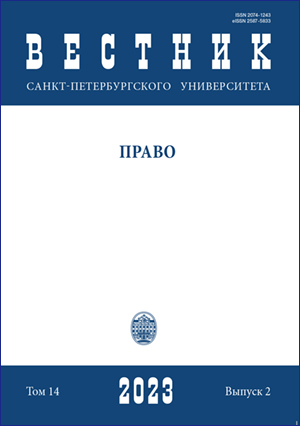Restrictive covenants in agreements between entrepreneurs and their employees under the law of foreign countries. Part one: United Kingdom and United States of America
DOI:
https://doi.org/10.21638/spbu14.2023.209Abstract
This review article is devoted to restrictive covenants, which are widely used in contracts between entrepreneurs and their employees in many countries. In Russia, these covenants are not supported by the courts. It is believed that such restrictions are contrary to the constitutional and other norms of Russian law. The purpose of this study is to analyze the foundations of legal regulation in a number of countries of such restrictive covenants as non-competition agreements, non-solicitation agreements, non-dealing agreements and non-disclosure agreements. This analysis is necessary for a reasonable answer to the question of the advisability of recognizing in Russia the legality of such agreements. The first part of this article provides an overview of the law on non-competition and other similar covenants of the United Kingdom and the United States, in the second part — Germany, France, Japan, China and the Eurasian Economic Union (EAEU). Due to the particularly widespread distribution of such covenants in the United States, the analysis of the foundations of their legal regulation in this country is central to the present study. In jurisdictions where non-competition agreements and other similar restrictive covenants are not prohibited, the “rule of reason” acts as a legal mechanism for balancing the competing interests of employers, employees and public interests. This rule allows the courts in each specific dispute to assess the specified conditions for their compliance with the protected business interest of the employer and other criteria. The conclusion is made about the advisability of legalizing agreements on non-competition, non-engagement and non-entrepreneurship in Russia, taking into account the positive foreign experience of legal regulation in this area. In this regard, it will be necessary to legislate in Russian law an analogue of the rule of reason.
Keywords:
restrictive covenant, non-competition agreements, non-solicitation agreements, non-dealing agreements, non-disclosure agreements, freedom of contract, freedom of labor, trade secrets, confidential information
Downloads
References
Downloads
Published
How to Cite
Issue
Section
License
Articles of "Vestnik of Saint Petersburg University. Law" are open access distributed under the terms of the License Agreement with Saint Petersburg State University, which permits to the authors unrestricted distribution and self-archiving free of charge.






